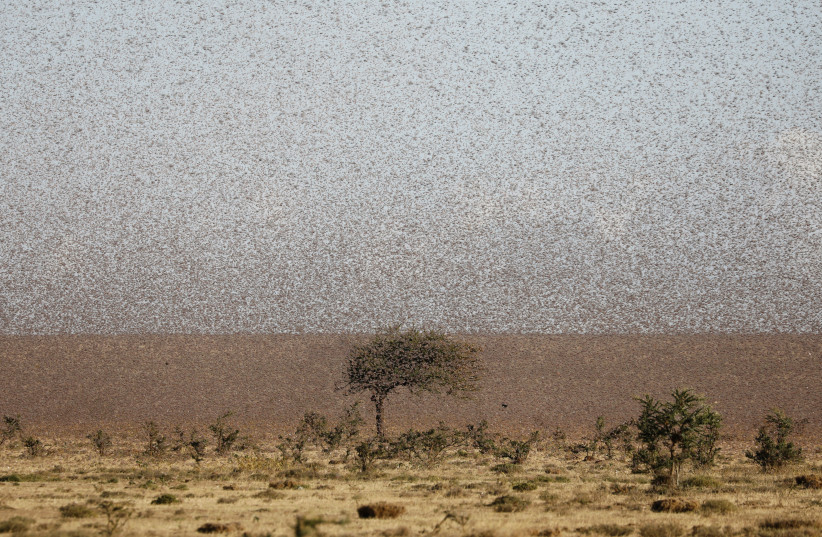Amidst drought and warming temperatures, conditions favored by the crickets, outbreaks across the West have worsened.

Farmers in the western United States are battling new outbreaks of Mormon crickets, ancient insects that can grow to almost three inches (8cm) in length.
Rancher Skye Krebs told the Associated Press the outbreaks have been “truly biblical.”
“On the highways, once you get them killed, then the rest of them come,” he explained. Mormon crickets are cannibalistic and will feast on each other, dead or alive, if their hunger is not satiated.
Mormon crickets are not new to Oregon, which was among the worst-hit states; they are native to western North America and their name dates back to the 1800s when they ruined the fields of Mormon settlers in Utah.
The US West is currently amid a decades-long “megadrought” that has dried up water resources and challenged farming and ranching operations across the region.

Amidst drought and warming temperatures, conditions favored by the crickets, outbreaks across the West have worsened.
These outbreaks can be extraordinary, as the species often travel in groups of millions or billions of individual insects, says the US Department of Agriculture (USDA).
Total destruction
In the past few years the crickets, in addition to grasshoppers, have destroyed swathes of crops as officials spend millions trying to control the swarms, according to the Associated Press.
The Oregon Legislature last year allocated $5 million to assess the problem and set up a Mormon cricket and grasshopper “suppression” program. An additional $1.2 million for the program was approved earlier this month.
As they swarm across the west, the insects devour vegetation, damaging crops and even changing patterns of erosion, water runoff and nutrient cycling, the USDA said.
Last year, 10 million acres in Oregon, which has seen the worse of the swarm, were destroyed by Mormon crickets and grasshoppers.
In response, officials have taken to spraying fields with pesticides. The USDA says that the preferred option is to spray only some sections of the field to reduce populations while leaving other sections untouched.
Content retrieved from: https://www.jpost.com/international/article-710989.